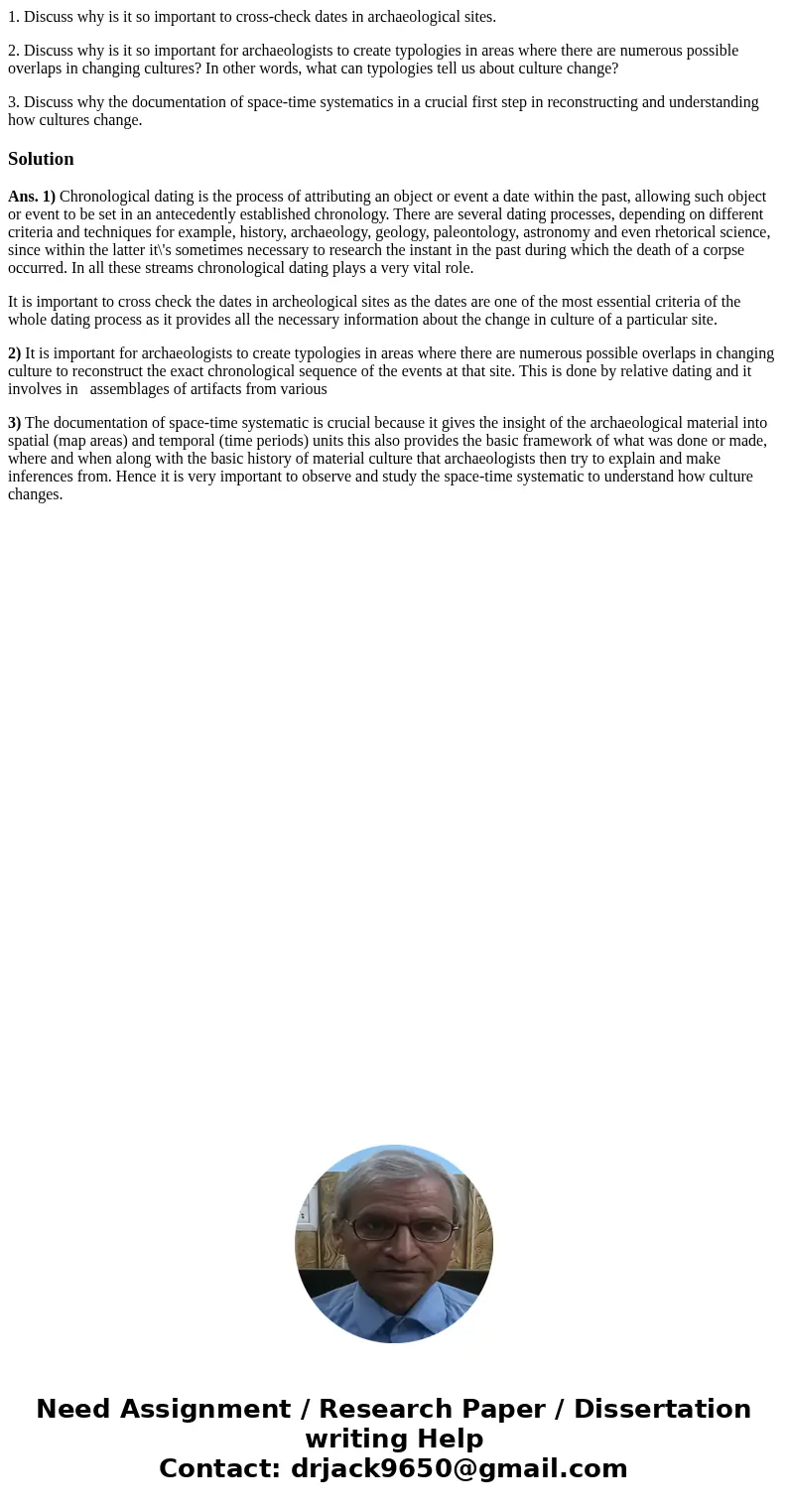1 Discuss why is it so important to crosscheck dates in arch
1. Discuss why is it so important to cross-check dates in archaeological sites.
2. Discuss why is it so important for archaeologists to create typologies in areas where there are numerous possible overlaps in changing cultures? In other words, what can typologies tell us about culture change?
3. Discuss why the documentation of space-time systematics in a crucial first step in reconstructing and understanding how cultures change.
Solution
Ans. 1) Chronological dating is the process of attributing an object or event a date within the past, allowing such object or event to be set in an antecedently established chronology. There are several dating processes, depending on different criteria and techniques for example, history, archaeology, geology, paleontology, astronomy and even rhetorical science, since within the latter it\'s sometimes necessary to research the instant in the past during which the death of a corpse occurred. In all these streams chronological dating plays a very vital role.
It is important to cross check the dates in archeological sites as the dates are one of the most essential criteria of the whole dating process as it provides all the necessary information about the change in culture of a particular site.
2) It is important for archaeologists to create typologies in areas where there are numerous possible overlaps in changing culture to reconstruct the exact chronological sequence of the events at that site. This is done by relative dating and it involves in assemblages of artifacts from various
3) The documentation of space-time systematic is crucial because it gives the insight of the archaeological material into spatial (map areas) and temporal (time periods) units this also provides the basic framework of what was done or made, where and when along with the basic history of material culture that archaeologists then try to explain and make inferences from. Hence it is very important to observe and study the space-time systematic to understand how culture changes.

 Homework Sourse
Homework Sourse